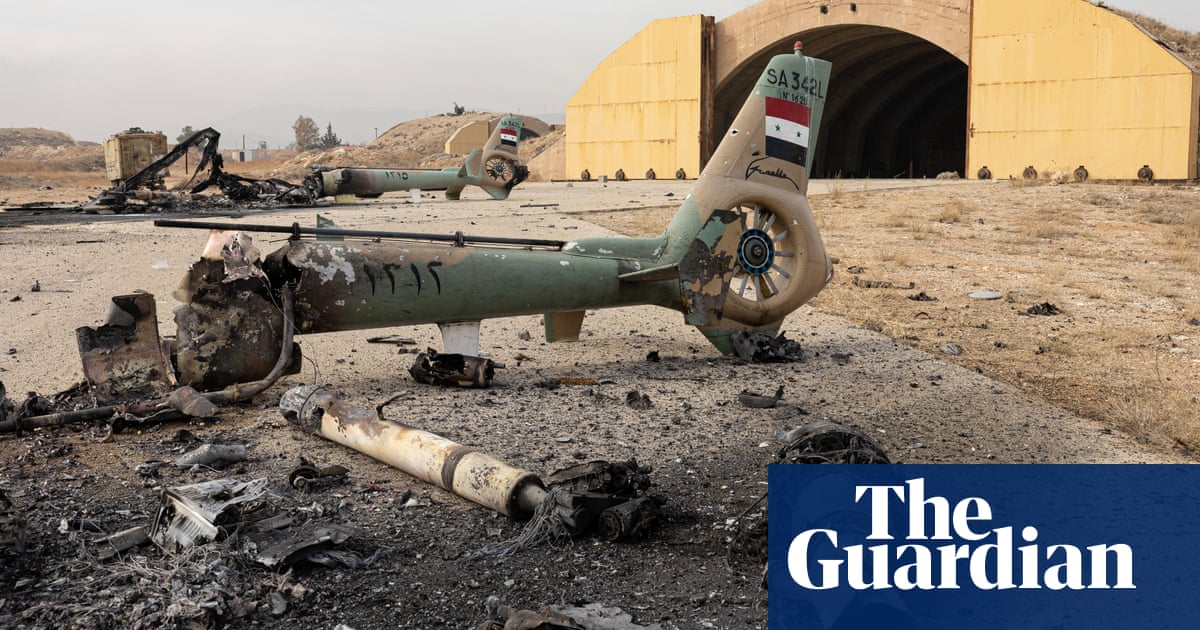 |
|
The recent escalation of violence in Syria, marked by Israel's extensive airstrike campaign, underscores the complex and volatile geopolitical landscape of the region. Despite a peace pledge from Hayat Tahrir al-Sham (HTS) leader Abu Mohammed al-Jolani, who declared his group's lack of interest in conflict with Israel, Israel launched dozens of airstrikes targeting various Syrian military sites. This action raises significant questions about Israel's motives and the potential for further escalation. The strikes, which included attacks on military bases, heavy weapons depots, sites associated with the Assad regime's chemical weapons program, and even elements of the Syrian navy, represent a significant show of force and a clear demonstration of Israel's military capabilities. The sheer scale of the operation, involving the reported launch of 61 missiles in under five hours, shocked many western capitals who anticipated a more limited response focused solely on chemical weapons and missile facilities. The extensive damage inflicted, estimated to represent a significant portion of the remaining Syrian military capabilities, points to a more strategic objective beyond simply neutralizing immediate threats.
Al-Jolani's statement, relayed through Syrian state media, emphasized his group's focus on rebuilding Syria after years of conflict and the departure of Iranian forces. He characterized Israel's justifications for the attacks as weak and false pretexts, highlighting the precarious situation in Syria and the urgent need for reconstruction and stability rather than renewed military conflicts. His plea for diplomatic solutions, rather than “ill-considered military adventures”, starkly contrasts with the actions taken by Israel. This discrepancy highlights the deep-seated mistrust and conflicting narratives that characterize the complex relationship between Israel and the various factions operating within Syria. The Israeli response, voiced by IDF chief of staff Herzi Halevi, maintained that the actions were solely to safeguard Israeli security and prevent the establishment of extremist elements near the border. This justification, however, fails to fully address the international concerns surrounding Israel's increasingly assertive actions and the potential implications for regional stability.
The international community has reacted with alarm to the ongoing situation. The United Nations has explicitly called for Israel to withdraw from the disputed buffer zone, highlighting the violation of Syria's sovereignty and territorial integrity. Several European nations, including France, Germany, and Spain, have echoed this call. The UN's concern stems from the potential for an open-ended occupation of Syrian territory, a violation of a 1974 disengagement agreement. Israel's claim that this agreement is null and void due to the fall of the Assad regime has not been accepted by the international community. The ongoing Israeli actions are also viewed in the context of broader regional dynamics. US Secretary of State Antony Blinken's recent talks with regional partners aimed at shaping the future of post-Assad Syria highlight the international community's efforts to navigate the complex power dynamics and prevent further conflict. Even the fact that Blinken acknowledged direct contact with HTS underscores the complexity of the situation and the diverse players involved in determining Syria's future. The situation is particularly concerning given that the actions taken by Israel don't seem to be merely defensive actions but rather a strategic military operation aimed at weakening Syria significantly. The potential consequences of continued Israeli actions, including wider regional instability and further humanitarian suffering, are considerable.
The continuing airstrikes raise serious questions regarding international law, the principles of sovereignty, and the prospects for peace in a region already scarred by decades of conflict. The contrast between Al-Jolani's plea for peace and Israel's military actions highlights the deep divisions and the lack of trust amongst the key players in the Syrian conflict. The international community's response, while expressing deep concern, faces the challenge of balancing its commitment to international law with the complex geopolitical realities of the region. The future trajectory of the conflict will likely depend on the willingness of all parties to engage in meaningful dialogue and diplomatic efforts to resolve the underlying issues driving the conflict. The alternative, continued military escalation, carries with it the high risk of expanding the conflict, potentially drawing in other regional powers and causing further widespread suffering. The international community’s efforts to address the humanitarian crisis and promote political reconciliation must be seen as critical steps towards restoring peace and stability in Syria.
Source: Israel launches dozens of airstrikes on Syria despite rebel leader's peace pledge
